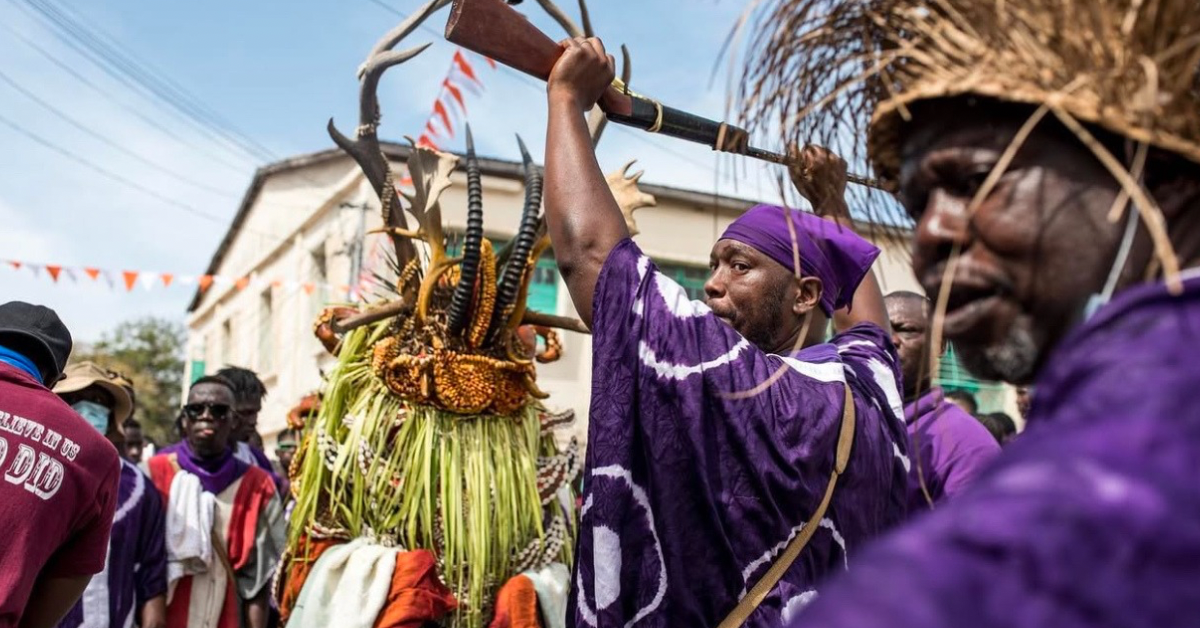Sierra Leonean activist, Joseph Bassie is among several people who are calling on the Sierra Leone Government to lift its ban on masquerades and lanterns.
Bassie and others have signed a petition calling for the lifting of the ban thereby promoting their country’s culture.
“I’m signing this petition to help advocate for the lifting of the traditional masquerade and lantern parade ban by the government of Sierra Leone,” the activist noted.
The President Julius Maada Bio’s administration placed an indefinite ban on masquerade dance and lantern parades about six years ago. The reason for the ban stems from protests that the event is mostly populated by hoodlums who use it as cloak to carry out their mischievous activities.
Despite calls from some secret society bodies, the government slammed an indefinite ban on the event.
The petitioners are arguing that the government should proffer other solutions and that the ban is preventing a distinct group of Sierra Leoneans from performing their civic rights.
“The government, communities, and cultural leaders must work together to find a way to revive these traditions in a safe, responsible manner,” the petition reads.
It added that the lifting of the ban would encourage the country to its rich cultural identity while addressing safety concerns.
It said that the practice itself is not bad but that undue interference from the political class has plunged the beautiful practice into violence and chaos among rivals.
The petition also made a clarion call on all media platforms to engage in awareness-raising geared towards enhanced positive perspective from the public about the practice.
Masquerade dances and lantern parades were introduced to the local population through secret societies in the provinces. The practice is still used as a form celebration and rites in some parts of rural Sierra Leone.
Masquerade dances also became quite popular in Freetown, especially in Krio communities like Fourah Bay, Aberdeen, Foulah Town and Kissy where Hunting societies were set to celebrate their ancestral Yoruba roots.
Today, it is still being practised but confined to the communities only. The directive explicitly prohibits individuals from entering the city center, a location that was previously frequented by Hunting particularly on holidays.
Lantern Parades were first introduced in British Sierra Leone in the 1930s. Decades later after independence, the tradition was practised on every Eve if independence and the last night of Ramadan. Learned Islamic scholars at the time discontinued the practice arguing that it is not of the Faith. However, the independence Eve parades continued until the ban by the government about six years ago.











